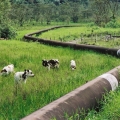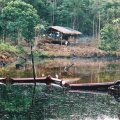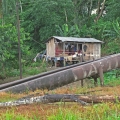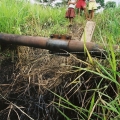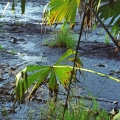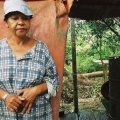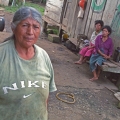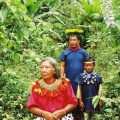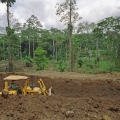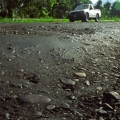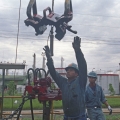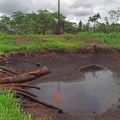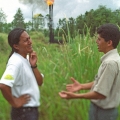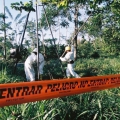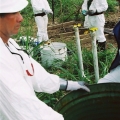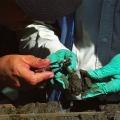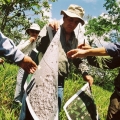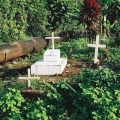Ecuador, Texaco-Toxico
ÉQUATEUR
TEXACO-TOXICO
Selon certains experts, c’est la plus grande catastrophe pour l’environnement après Tchernobyl. C’est en tout cas le plus gros désastre écologique lié au pétrole : entre 1971 et 1992, la compagnie américaine TEXACO, chargée d’exploiter le gisement équatorien, a déversé 30 millions de gallons d‘hydrocarbures (deux fois plus que l’Exxon Valdez en Alaska) et de déchets toxiques dans la forêt Amazonienne.
En toute discrétion et impunité.
Aujourd’hui, les communautés indigènes attaquent en justice la puissante multinationale dans ce qui est déjà considéré comme le procès du siècle. Elles demandent réparation pour les dommages causés. Ils sont immenses : rivières polluées, écosystèmes ravagés, un million d’hectares de forêt dévastée. Humainement le prix est plus lourd encore : deux ethnies, les Tetete et les Sansahuari, ont disparu, emportées par une crise sanitaire sans précédent qui menace d’autres tribus, affecte 30.000 habitants de la région de l’Oriente. La Texaco est accusée d’avoir délibérément utilisé une technologie polluante et dangereuse pour réduire ses coûts.
« La forêt pleure, elle pleure toutes ces années d’injustice », disait Luis Yanza, un chef paysan du Front de défense de l’Amazonie équatorienne. Comment ne pas éprouver le besoin de témoigner sur cette population qui vit depuis trente ans avec l’héritage toxique laissé par les activités du géant de l’énergie, la société Texaco.
ECUADOR
TOXIC TEXACO
According to certain experts, it is the biggest environmental catastrophe after Chernobyl. It is most certainly the greatest oil disaster the world has known. Between 1971 and 1992 TEXACO, the American oil company that was pumping oil in Ecuador, poured 30 million gallons of hydrocarbon (twice as much as the Exxon Valdez in Alaska) and toxic waste into the Amazon forest.
And nobody said a word.
Today, the native populations are opposing the powerful multinational in the trial of the century. They are seeking damages for the devastating toll of polluted rivers and the destruction of the ecosystem, with over a million hectares of forest destroyed. In terms of human life the price paid is even higher: the Tetete and the Sansahuari peoples have been decimated by the consequences of the highly polluting technology Texaco is accused of having used quite deliberately, to reduce costs. Other tribes are still threatened, including some 30,000 inhabitants of the Oriente region.
« The forest is in mourning, for all that was lost in all these years of injustice », said Luis Yanza, one of the peasant leaders of the Amazon Defence Front (FDA). What other choice for these populations who have lived for over thirty years with the toxic heritage left by the activities of the American oil giant, than to tell the world what happened?

